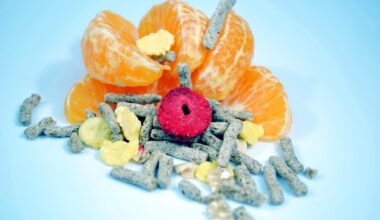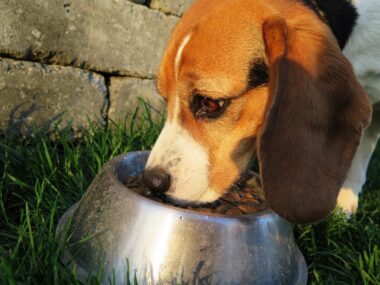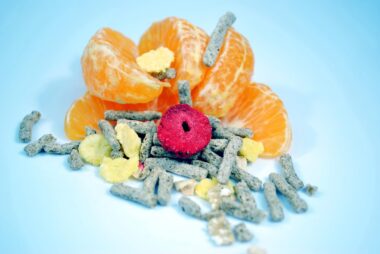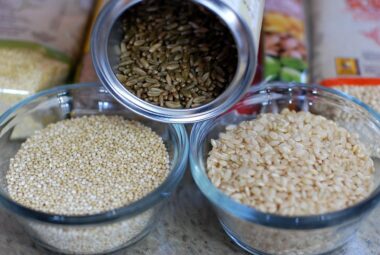How Fiber Helps Dogs With Digestive Disorders
Fiber, an essential component in dog nutrition, plays a pivotal role in promoting overall digestive health. Incorporating fiber into a dog’s diet aids in maintaining optimal bowel function and supporting the digestive system. Dogs require a balanced diet that includes a variety of nutrients, and fiber is a crucial part of this mix. It helps in managing both diarrhea and constipation. Soluble fibers, found in oats and peas, dissolve in water, forming a gel-like substance that can regulate the rate of digestion. On the other hand, insoluble fibers, present in wheat bran and vegetables, add bulk to the stool but don’t dissolve, facilitating easier movements. The impact of regular fiber consumption can significantly reduce the risks of developing chronic conditions associated with digestives, such as colitis. Besides supporting gut health, fiber can also help dogs feel full, contributing to a healthy weight. This is especially important for dogs who are prone to obesity. Overall, understanding the significance of fiber in a dog’s diet can lead to better health decisions for your furry friend.
Many pet owners underestimate the importance of fiber in their dog’s diet. The right balance of soluble and insoluble fiber can work wonders for their digestive system. The benefits of fiber can be especially pronounced in dogs suffering from digestive disorders. For instance, if a dog is experiencing diarrhea, soluble fiber can absorb excess liquid and can form a gel that slows down gut transit. This regulation can contribute to firmer stools and improved gut health. On the other hand, when a dog is constipated, insoluble fiber can add bulk to the waste, facilitating easier passage. Dogs require different amounts of fiber depending on their size, age, and activity level. Consulting a veterinarian can help determine the right type and amount of fiber necessary for an individual dog. Fiber does not just come from commercial dog food; home-cooked meals can also be a source. Vegetables, fruits, and whole grains are excellent additions to enhance fiber intake. It’s crucial to introduce fiber gradually to avoid gastrointestinal upset. This positive change can lead to improved digestive health and a happier pet.
Incorporating fiber into a dog’s diet is not just about managing disorders but also about maintaining long-term digestive health. Some dog breeds are particularly prone to gastrointestinal issues, making fiber consumption even more critical. For example, breeds like Boxers and Bulldogs often experience digestive difficulties, and a fiber-rich diet can help alleviate some of these problems. Additionally, fiber acts as a prebiotic, promoting the growth of beneficial gut bacteria. These bacteria are essential for a well-regulated digestive system. Good gut health can lead to improved nutrient absorption, ensuring that your dog receives all the vitamins and minerals it needs to thrive. Furthermore, fiber can help in reducing inflammation, which is beneficial for dogs with chronic digestive conditions. Some high-quality dog foods contain added fiber to ensure that dogs meet their digestive health needs. Always read the labels of commercial dog foods to ensure it aligns with your dog’s dietary requirements. Creating a fiber-rich meal plan can lead to a healthier lifestyle and enhanced longevity for your canine companion.
It is important to note that not all fibers are created equal; the source of the fiber can significantly affect its benefits. Some commercial dog foods may include by-products as their fiber source, providing minimal health benefits. Therefore, pet owners should choose high-quality dog foods with natural, whole ingredients. Foods rich in fiber must also balance the dog’s total daily intake. Too much fiber can lead to digestive discomfort, such as gas or bloating. Start by gradually incorporating fiber into your dog’s meals to gauge their tolerance and reaction. Monitoring your dog’s stool consistency can help you determine how well they’re dealing with the new additions to their diet. If you notice any significant changes in bowel habits or gastrointestinal distress, consult your vet immediately. Furthermore, homemade meals can offer control over fiber sources, allowing for a tailored diet that meets your dog’s unique needs. It’s essential to choose appropriate plant-based foods that are safe and healthy for dogs, such as carrots, green beans, or pumpkin. These additions can promote digestive health effectively.
The Role of Fiber in Weight Management
Fiber also plays a crucial role in managing a dog’s weight, which is a significant concern for many pet owners. Dogs that are overweight may experience various health issues, including diabetes and joint problems. Increasing fiber in their diet can help manage their caloric intake while providing a sense of fullness. Fiber slows down the digestion of food, thereby reducing hunger pangs between meals. Additionally, it can reduce the total caloric density of the food consumed. For weight management, it’s beneficial to focus on fiber-rich dog foods specifically formulated for weight control. These foods usually have a higher concentration of fiber while maintaining lower fat content. Supplementing a dog’s regular meals with fiber-rich fruits and veggies can help as well. However, balance is essential as too much fiber might lead to an upset stomach or altered stool consistency. Moreover, having a healthy weight fosters better digestive health, which, in turn, reinforces the importance of fiber. Regular exercise in conjunction with proper nutrition can lead to effective weight management, resulting in a happier, healthier dog.
One underrated benefit of dietary fiber is its ability to aid in the prevention of certain diseases. A diet rich in fiber has been linked to a reduced risk of developing colorectal cancer, and similar principles apply to dogs. By maintaining healthy digestion and promoting regular bowel movements, fiber can contribute to better long-term wellness. In addition to cancer, fiber helps manage conditions like anal gland problems. A common issue in dogs, this can be alleviated by ensuring fiber intake remains consistent. The fiber pushes against the walls of the intestines, helping to excrete waste more efficiently, thereby aiding in maintaining overall digestive health. Regular vet checkups and awareness of your dog’s dietary habits can significantly impact their well-being. Being aware of signs such as frequent scooting or difficulty in passing stools can indicate the need for additional fiber. It’s advisable to keep a close eye on your dog’s digestive health and adjust their diet as necessary. This vigilance can prevent the development of severe conditions. Moreover, it demonstrates a commitment to giving your dog a longer, healthier life.
Finally, transitioning your dog into a fiber-rich diet should be done over a period of time. Sudden changes can lead to gastrointestinal disturbances that may cause discomfort. Start by mixing small amounts of high-fiber foods into their regular diet and increasing the proportion gradually. This approach can help your dog acclimate to the changes more smoothly, mitigating any potential digestive upset. It also allows for monitoring their responses to the fiber increments. Pay attention to their energy levels and stool quality while transitioning. If stool becomes exceptionally loose or your dog becomes lethargic, reevaluate the changes made. It’s essential to note that while fiber promotes digestive health, it should accompany a balanced diet filled with proteins, fats, and other vitamins necessary for overall well-being. Educating yourself about which fibers are beneficial will yield the best results for your dog’s health. Remember, healthier digestion means a happier and more energetic pet. Always consult with your veterinarian about the best dietary decisions to keep your dog in peak condition.






